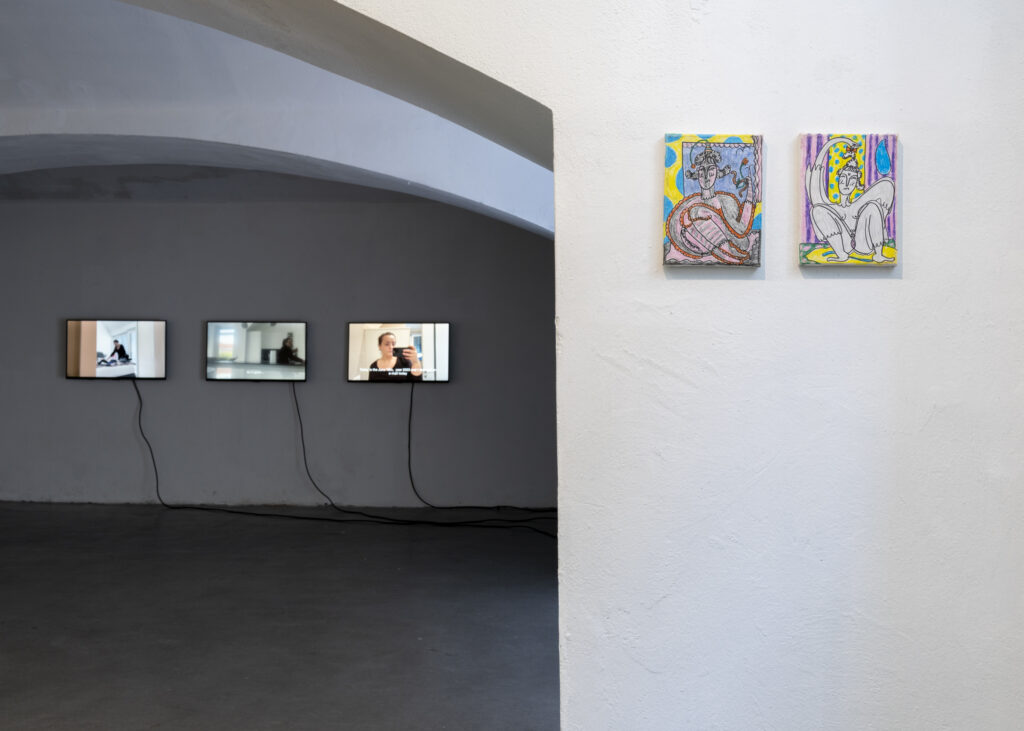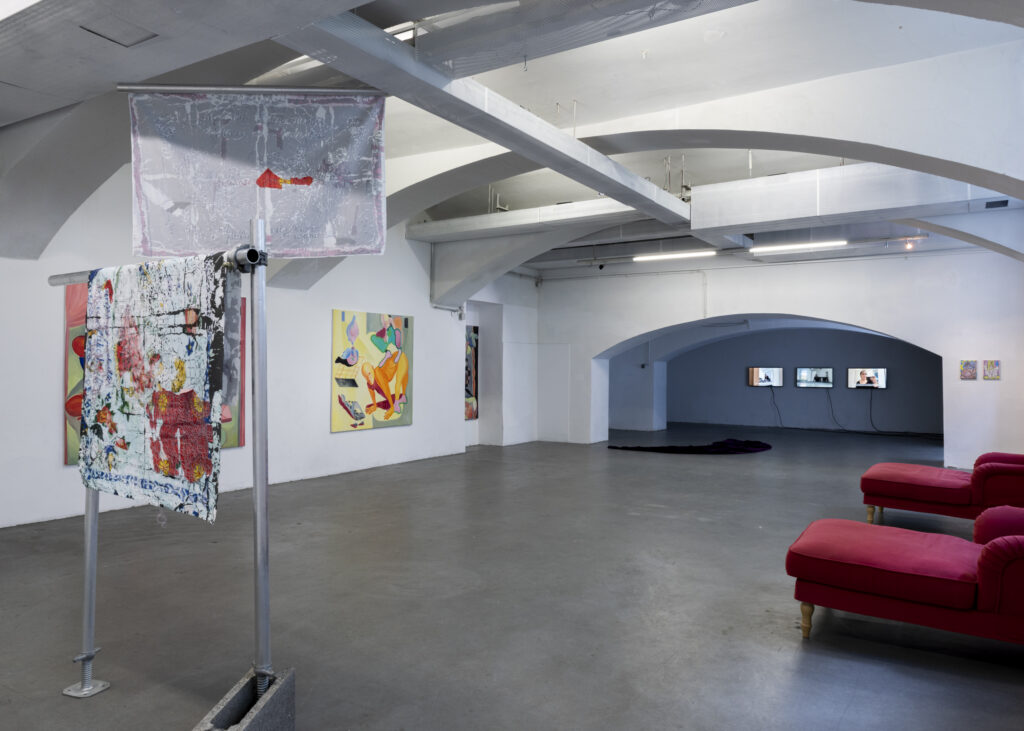
DAS WEISSE HAUS is an art space that’s now located in the center of Vienna. It’s provided a venue for hundreds of artists and curators to carry out experimental artistic projects and research since it opened in its first location in 2007. In the words of Eva Kovač, a member of the BLOCKFREI Collective and the leader of DAS WEISSE HAUS’ artistic and curatorial direction, the space’s main purpose “is to serve as a liaison and meeting point between Viennese emerging and professional art scenes, different communities and audiences, but also between international and local artists and art professionals.”
Their recent group exhibition, the cook is burned out, but the food is great (co-curated by Kovač and Asija Ismailovski), turned attention to the stressful and taxing conditions under which cultural producers do their work; or, the fact that we’re “perpetually teetering on the edge of the overwhelming overwhelm,” as the curators put it.
The commitment to connecting locals and international art workers was obvious in the works that were chosen. They invited Nina to present her work, Homage to Stilinović: The Artist is Sleeping (2020). Other standout works in the group exhibition included a video work by Željka Aleksić, an installation by Finnegan Shannon, and paintings by Katharina Höglinger.

Indeed, there is a notable emphasis on representing artists and artworks from our part of the world. When I asked Eva about what was up with the the emerging connection between DAS WEISSE HAUS and Balkan artists, she said, “The people who are either coming from or have heritage from Southeastern Europe form a huge minority of current Viennese inhabitants… to have a connection to the so-called ‘Balkans’ while living in Vienna is a very Viennese way to be.” But, since many of the galleries and museums in the city refuse to “recognize this reality,” Eva said that “we, in the BLOCKFREI Collective and DAS WEISSE HAUS, as well as Asija and I, are fed up with this ignorance.”
The exhibition itself raised the possibility that the “foreign” artists who have made Vienna their home might be more exposed to the stresses and precarities of being an artist than others. For example, a Serbian-born artist from a working class family, Željka Aleksić, contributed a video work that showed her receiving the exceptional news that she’d received a prestigious scholarship while working at her day job of cleaning apartments in order to support herself.

The editors of Punkura also traveled to Vienna to give a talk on the theme, which was titled From Octopus to Spider Artworker: What Artists have to do Besides Making Art? Kovač and Ismailovski described the idea as emerging “from the idea of an “octopus artworker” – an imagined creature with eight arms, three hearts, and nine brains – all preoccupied, diligently working on several projects, gigs and side gigs, productions, networking, texts, exhibitions, administration, insurances, visas, taxes, and so on.” I don’t just work on Punkura, and neither does Nina, we probably have a dozen different jobs and hustles between us. We do share the hope that the Octopus artist “will be able to slowly evolve into a “spider artworker” – mad, omnipresent, mindful, with an inherent sense for structure, calculated moves, strategic outlooks, and sharpened senses. The spider artworker tends to abolish networking – she creates the network itself.”
Whether such a vision is possible within the modern, post-Fordist world remains an open question. As do the questions of whether it’s possible for everybody who happens to call Vienna home, or whether it’s possible for us who live in Sarajevo. But it’s certainly true that we had a great time in Vienna with the team behind DAS WEISSE HAUS. We’re excited to see what the BLOCKFREI team of Nevena Janković, Eva Kovač, and Jana Dolečki does next with the space.
– Adrian
DAS WEISSE HAUS
Hegelgasse 14
1010 Wien
